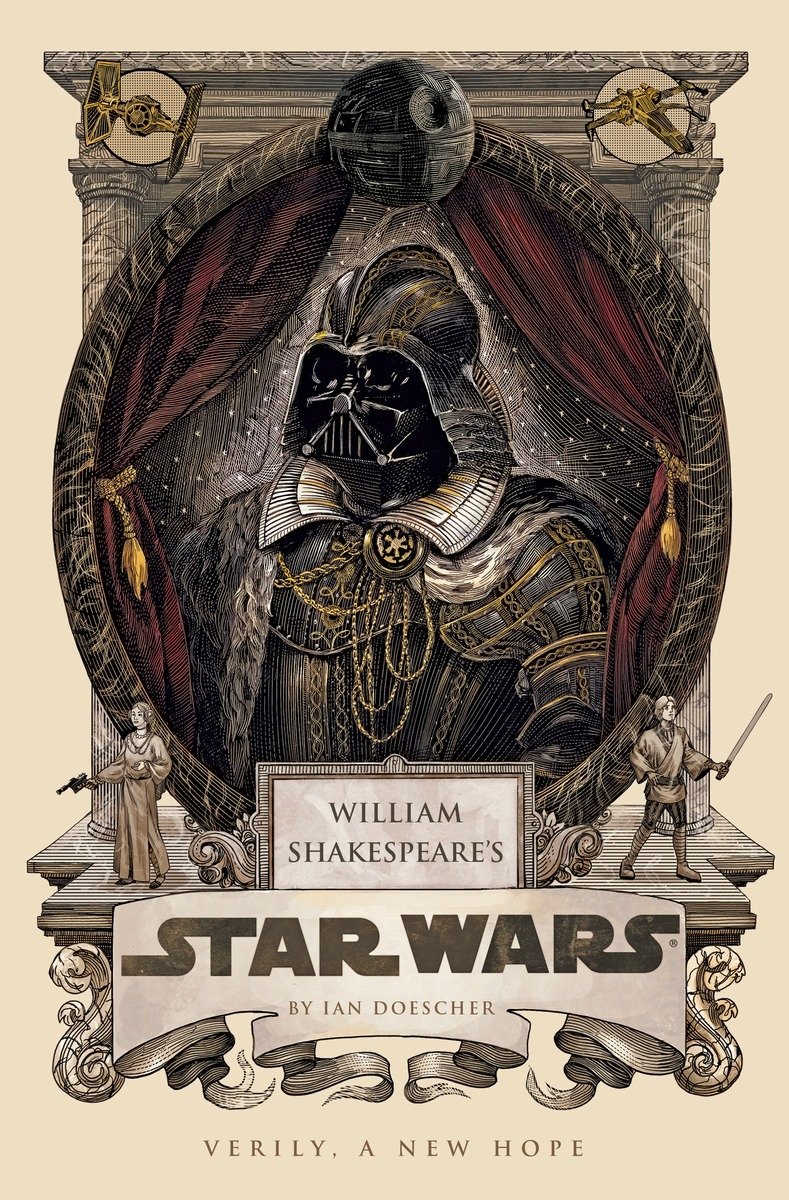I have nothing against Novelty Shakespeare—not even when it's connected to Star Wars. Indeed, I think I was the first person to give the world these gimmicky gems:
A Tauntaun! A Tauntaun! The Third Moon of the Ice Planet Hoth for a Tauntaun!
Alas, poor Yorick. I knew him, Obi-wan. Pah! And I thought he smelled bad on the outside!
Act III, scene ii. Another part of the heath. Stormtroopers still.
Jedi have died from time to time, and worms have eaten them—but they always come back as shiny, shiny ghosts.
Note: For others, see this post on Shakespeare Geek's blog.You don't need to see his identification. We don't need to see his identification. The Earl of Oxford is not the poet you're looking for. The Earl of Oxford is not the poet we're looking for. He can go about his scholarship without distractions about the authorship issue. You can go about your scholarship without distractions about the authorship issue. Move Along. Move along.
Luke, I am thy father's spirit, doomed for a certain term to walk the night.
Naturally, then, I was curious when I heard about a retelling of the plot of Star Wars: A New Hope entirely in iambic pentameter, and I was grateful when they sent me a copy. And the author of the book has clearly put a lot of thoughtful time into its creation. But, in all honesty, the book begin to pall pretty quickly. Good, strong lines lines like these (something of a silolquy by Darth Vader) . . .
. . . are offset by lines that are a bit too tedious:And so another dies by my own hand,
This hand, which now encas’d in blackness is.
O that the fingers of this wretched hand
Had not the pain of suff’ring ever known.
But now my path is join’d unto the dark,
And wicked men—whose hands and fingers move
To crush their foes—are now my company.
So shall my fingers ever undertake
To do more evil, aye, and this—my hand—
Shall do the Emp’ror’s bidding ever more.
And thus we see how fingers presage death
And hands become the instruments of Fate. (I.ii.27-38)
On the other hand, the publisher has put together this amusing trailer for the book:LUKE: It seemeth that the Sand People have done
This wretched deed—yon gaffi sticks and tracks
Of bantha, aye. But ne’er in all my years
Have Tuskens gone awry so far as this.
OBI-WAN: And they have not, though they who this vile deed
Have done, would make us think Sand People did.
But hark! Take note, and look ye thereupon:
Yon tracks are side by side, yet Sand People,
’Tis known, e’er one behind the other ride,
So better may they hide their numbers large. (II.iv.1-10)
The book is excellent in the genre of Novelty Shakespeare and will make a lovely gift for the Star Wars and / or Shakespeare fans in your life, but I'm not certain it will bear multiple readings.










No comments:
Post a Comment